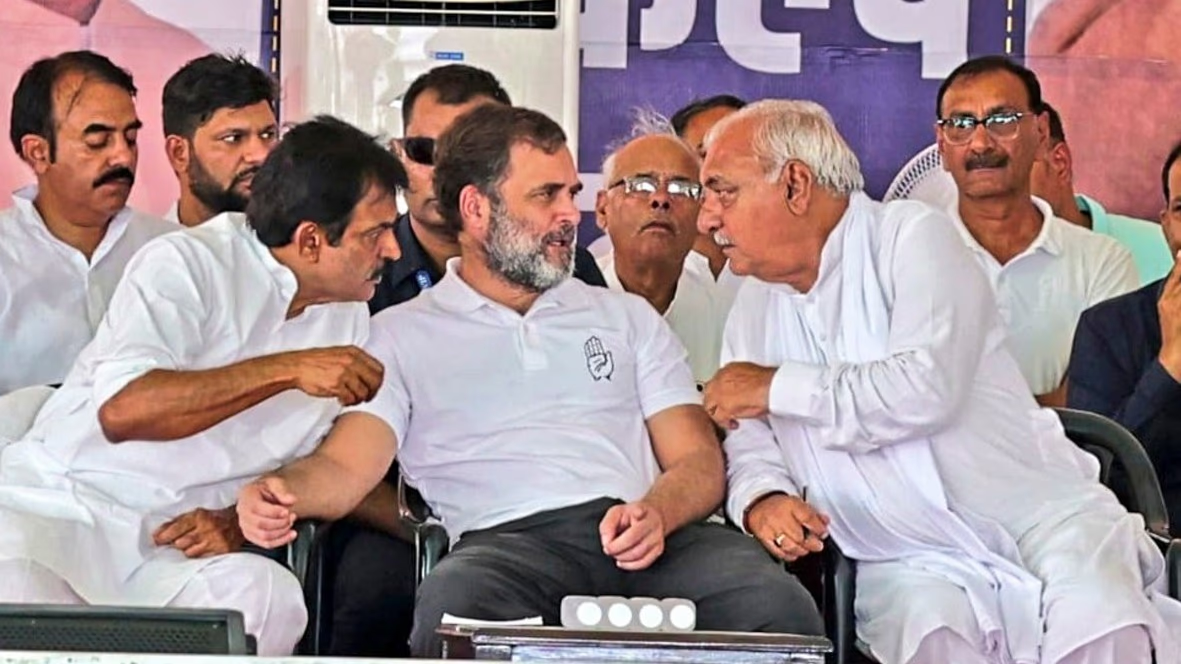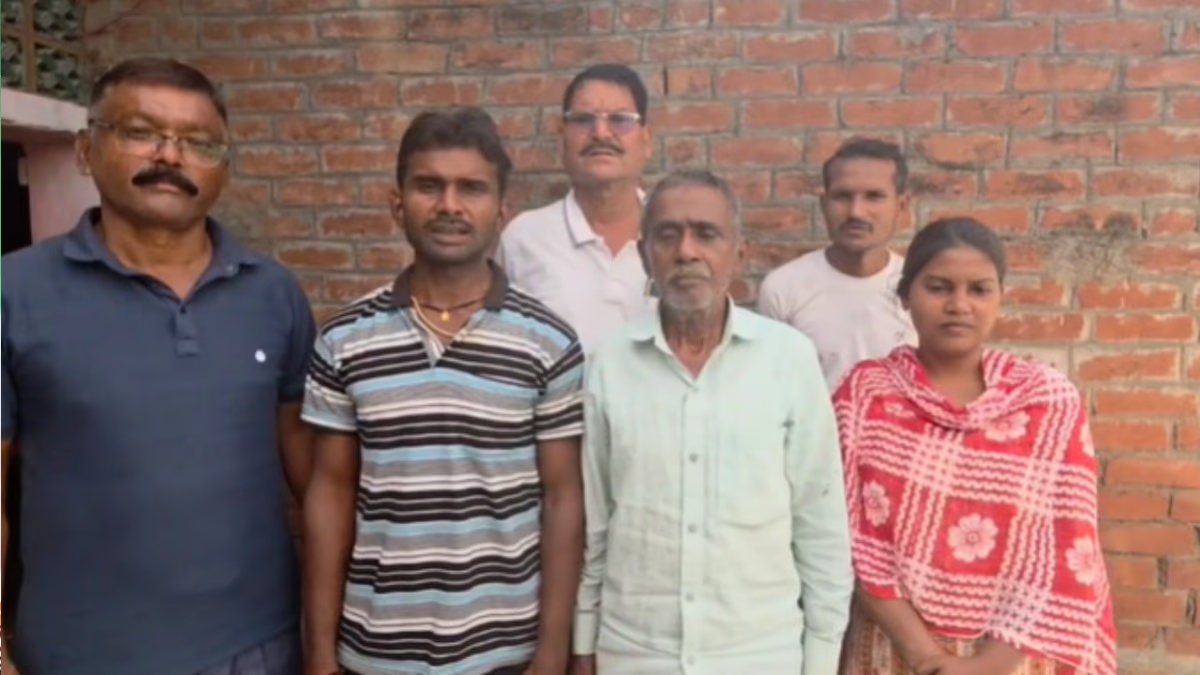The election outcomes in Haryana and Jammu-Kashmir are now revealed. The buzz from Haryana will resonate far and wide for, though initial trends suggested a sweet success for Congress, it was the BJP that tasted victory. The mandate from Haryana highlights an unwavering trust in PM Narendra Modi even beyond the parliamentary elections.
The core issues of soldiers, farmers, wrestlers, and the constitution became central themes during Rahul Gandhi's campaign. Yet, it was BJP that emerged victorious. For the first time in Haryana's 57-year history, any party—BJP—is set to form government three times in a row. Holding the record now, BJP has become the largest party to govern states for three consecutive terms, boasting a success rate of 61%. The significant Jat community's influence seemed to favor Congress, but results told a different tale. Congress lost three seats in the Jat-dominated areas, while BJP gained an equal number of seats.
The constitutional issue involving the Dalit vote saw Rahul Gandhi canvass with the idea of caste census. Despite his efforts, BJP had greater benefits, gaining three more Dalit-reserved seats. BJP outperformed Congress in acquiring votes across all voter demographics: upper castes, OBC, and Dalits. In the 2019 assembly elections, BJP claimed 40 seats, retaining 26 in 2024, along with securing 22 new ones, while taking away 14 seats from Congress including 4 from JJP and independents. Public faith in BJP and Narendra Modi resonated strongly even here, more than Congress.
Post-Result Statements
from PM Modi and Amit Shah
Upon arrival at the BJP headquarters, Prime Minister Modi remarked that several states have effectively declared 'No Entry' for Congress. Meanwhile, Amit Shah noted on social media that the successive terms of Modi at the center and victories in states like Haryana and others lay a testament to BJP's belief in 'Politics of Performance'.
Comparing Congress and BJP Based on Performance Politics
1- Between 2014 and 2024, Congress lost in 47 of 62 assembly elections, alongside three successive Lok Sabha losses.
2- For the past 13 years, Congress has failed to return to power with pro-incumbency even when in control of states.
3- In states where anti-incumbency affected ruling parties, Congress occasionally found victory opportunities as an alternative. However, success was rare by Congress leading solely.
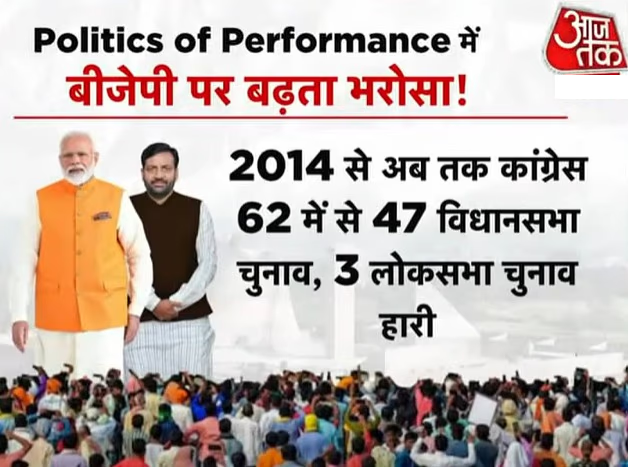
Source: aajtak
4- While holding power, Congress contested in 40 legislative sessions but won only 7, marking an 18% success rate. In contrast, BJP scored a 55% win rate with victories in 22 of 40 elections. Regional parties outperformed Congress as well, with a 50% success rate by securing 18 wins out of 36 when in power.
Party Victory Analysis by Castes
In Haryana's assembly elections, calls for caste-based census and fears about constitutional changes rang out. Yet, election results by caste reflect the tide against Congress. Among upper caste MLAs, 27 are BJP, 20 Congress, and others; among Jat MLAs, 6 are BJP; Punjabi MLAs see 8 BJP wins; in Brahmin MLAs, 7 BJP wins occur. OBC MLAs saw 13 go to BJP. The breakdown Congress hoped for did not materialize.
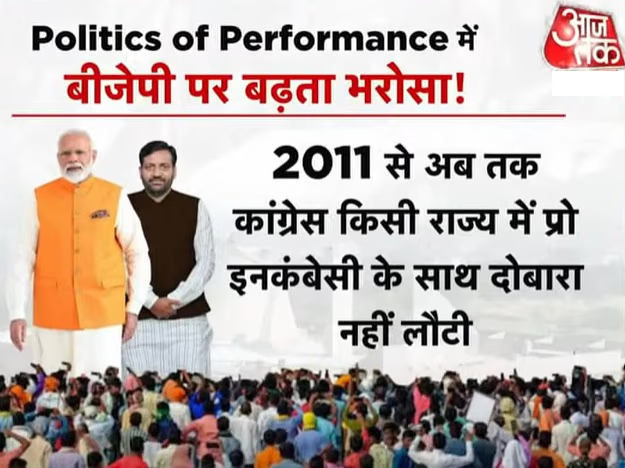
Source: aajtak
Disruption of Congress's Social Engineering by BJP
Congress expected a coalition of Jat and Dalit votes. However, the BJP's strategic counter transformed expectations. BJP emphasized non-Jat, marginalized Dalits, and OBC categories. It allocated seats strategically for marginalized sections ensuring a win on reserved lands.
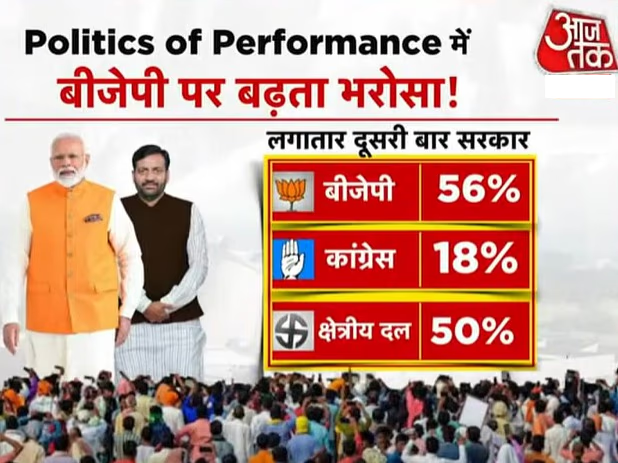
Source: aajtak
BJP's Distinctive Strategy in Haryana
BJP mirrored Bihar’s Mahadalit strategy for Dalit votes in Haryana, recognizing separate marginalized sections among a 22.5% Dalit populace. The party actioned ticket allocations for reserved communities. The outcome resembled victory, bending previous standings towards BJP.
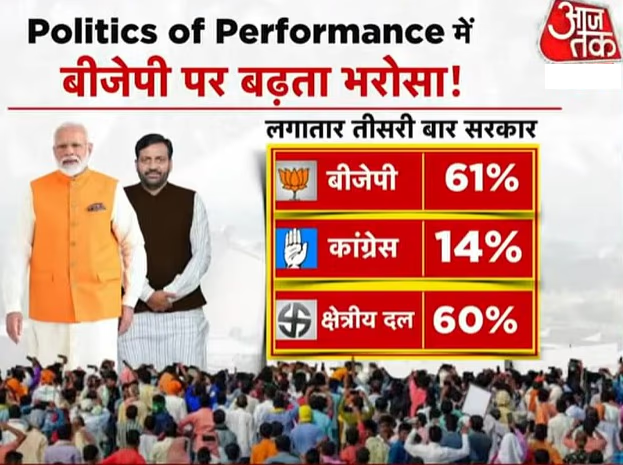
Source: aajtak
Moreover, perceiving anti-incumbency against CM Khattar, BJP strategically introduced Naib Singh Saini from OBC lineage, tapping into a 44% demographic. With their strategic lineup, BJP successfully pushed through, securing a significant victory ratio.
